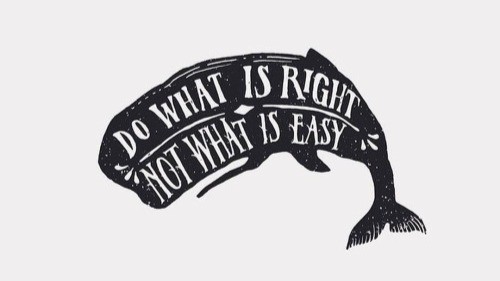June 6, 2025
FSMA Rule 204: Making Sense of Ad-Hoc Purchases
Ad-hoc or infrequent purchases still trigger FSMA Rule 204 compliance if they involve handling foods on the Traceability List—regardless of how often they occur, businesses must track and report Key Data Elements at every critical event.


Of the many areas FSMA Rule 204 covers perhaps Ad-Hoc Purchase by handlers and retailers of food is the most mis-understood.
To begin, the FDA does not define ad-hoc purchases. So we’ll infer a definition based on existing language and actual practices observed in the field. These purchases are informal (at times), infrequent or one-off, and not specifically addressed in the regulatory text.
An Ad-Hoc purchase is described as handling a food on the Food Traceability List (FTL) in an a-typical and infrequent manner.
I’ve included a-typical in the definition based on actual practices I’ve observed from retail food establishments purchasing practices.
What the Rule Says
As a reminder the rule is focused on entities that manufacture, process, pack, or hold foods on the Food Traceability List (FTL) and requires that certain Key Data Elements (KDEs) be recorded at Critical Tracking Events (CTEs) like growing, receiving, transforming, and shipping.
However we have to stress what the rule does and does not do regarding handling frequency. In fact frequency is less important. Companies seeking clarity are informed by the rule in the following manner:
- Any transaction involving FTL foods that meets the definitions of a CTE requires compliance, regardless of whether it’s a regular supply relationship or a one-time transaction.
- Receiving events are defined by taking physical possession of food, not by the nature or frequency of the purchase.
- Shipping events similarly apply to whenever you arrange for food to be transported to another entity.
Thus, even occasional or ad-hoc purchases fall under the rule if:
- The product is on the FTL, and
- You are performing a CTE like receiving, transforming, or shipping.
There are small farm exemptions, retail exemptions, and direct-to-consumer exemptions, but these are based on size, sales percentages, or sales channel — not on the frequency of transactions.
We’ll return to sales channel in a moment.
The FDA’s FAQ
Because the rule doesn't explicitly discuss "ad-hoc purchases," the FDA’s Traceability FAQs are where they clarify practical questions the industry has.
Key clarifications include:
- Scope of Applicability: Whether an entity is covered depends on whether they manufacture, process, pack, or hold an FTL food — not on how often they do it.
- Traceability Plan Requirements: The rule expects covered entities to maintain traceability plans even if their dealings with FTL foods are infrequent or sporadic.
- Minimal Handling Situations: The FAQs clarify that even infrequent handlers (e.g., a warehouse that temporarily stores FTL items) must still comply if they meet the CTE definitions.
- Exemptions Clarified: They detail which businesses are exempt (e.g., qualified end-users under the Produce Safety Rule, certain retail food establishments), which helps industry players understand that it’s who you are and what you’re doing, not how often you do it, that matters.
In effect, frequency (i.e., ad-hoc nature) is not a factor for whether FSMA 204 applies. If you handle an FTL food in a covered way even once, compliance obligations attach unless you qualify for a specific exemption.
Practical Applications
One of our clients is a local restaurant (Retail Food Establishment or RFE). They purchase all their food on a daily basis from local retailers and CSA’s. There is somewhat of a regular frequency with exceptions for holidays and special happenings in the city. A portion of their purchases are from exempt parties, like the CSAs. Others are from two regional retail channels where the public purchase food. We don’t characterize these as ad-hoc but they are a-typical. In both instances this RFE is not able to gather all of the required KDE’s to capture for the receiving CTE.
Sale Channels
Perhaps closer to our definition of ad-hoc is a client who is both a specialty food distributor and operates several brick & mortar stores where customers and the general public may purchase fresh foods. Customers on account and walk-in consumers place orders for pickup at their retail locations through a 3rd party application like Instacart. Their big question is whether they are obliged to provide KDEs to the Instacart customer according to a shipping CTE.
What sort of unusual use cases have you uncovered or experienced when assessing your Rule 204 compliance requirements?
Used by the world's leading companies
















































Take the First Step
Contact Tim directly to address your traceability and sustainability concerns.
.jpg)





